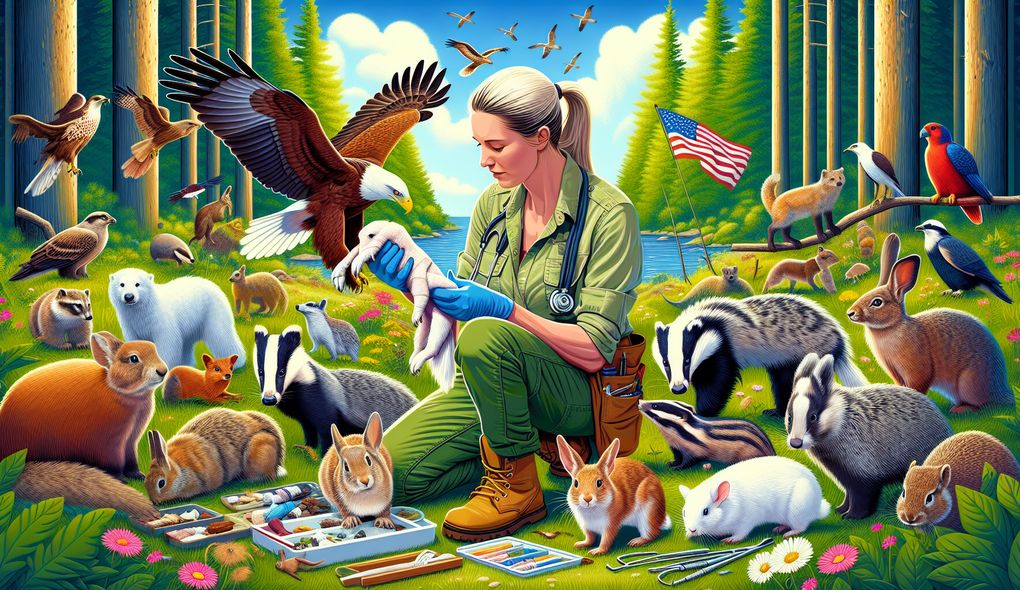What are your long-term goals or aspirations in the field of wildlife rehabilitation?
SENIOR LEVEL

Sample answer to the question:
My long-term goal in the field of wildlife rehabilitation is to become a recognized expert in the care and rehabilitation of diverse wildlife species. I want to continue expanding my knowledge and experience, particularly in the area of medical skills and veterinary procedures. I hope to take on leadership roles where I can train and mentor junior staff, interns, and volunteers. Additionally, I aspire to contribute to the field through research and community outreach, promoting the importance of wildlife conservation and ethical rehabilitation practices.
Here is a more solid answer:
As a wildlife rehabilitation specialist, I have a strong passion for the well-being and conservation of wildlife. My long-term goal is to advance my expertise in animal physiology and behavior to effectively diagnose and treat injuries and illnesses in a wide range of wildlife species. In addition to hands-on care, I aim to develop my leadership and team management abilities, taking on roles where I can train and supervise junior staff, interns, and volunteers. I believe that effective communication is crucial in this field, and I aspire to not only effectively communicate with the public and stakeholders, but also collaborate with veterinarians and other wildlife specialists to ensure the best possible care for the animals. Lastly, I am committed to maintaining a compassionate and ethical approach to wildlife care and rehabilitation, advocating for the well-being of individual animals and the conservation of their natural habitats.
Why is this a more solid answer?
The solid answer provides more specific details about the candidate's long-term goals and aspirations in wildlife rehabilitation. It addresses each of the evaluation areas, showcasing a commitment to continuous learning, leadership development, effective communication, and a compassionate and ethical approach to wildlife care and rehabilitation. However, it could still benefit from further elaboration and examples.
An example of a exceptional answer:
In the field of wildlife rehabilitation, my long-term goals revolve around becoming a recognized leader and expert in the care and conservation of wildlife. I am passionate about understanding the intricate details of animal physiology and behavior, as this knowledge is vital for accurately assessing and treating injuries and illnesses in a variety of wildlife species. I aspire to not only provide hands-on care but also to develop and oversee comprehensive rehabilitation programs that address the specific needs of different wildlife species. To achieve this, I aim to enhance my leadership and team management abilities, mentoring and training junior staff, interns, and volunteers to ensure the highest standard of wildlife care. Effective communication is paramount in this role, and I am committed to communicating not only with the public and stakeholders, but also collaborating closely with veterinarians and wildlife specialists to optimize treatment plans. Moreover, I believe in upholding a compassionate and ethical approach to wildlife care and rehabilitation, valuing the individual well-being of each animal and striving to contribute to conservation efforts through community outreach and education.
Why is this an exceptional answer?
The exceptional answer goes above and beyond in addressing the evaluation areas and showcasing the candidate's passion and dedication to their long-term goals. It demonstrates a clear vision of becoming a recognized leader and expert in wildlife rehabilitation, and it provides specific examples of how the candidate plans to achieve this through continuous learning, leadership development, effective communication, and a compassionate and ethical approach. The answer also emphasizes the candidate's commitment to community outreach and education, highlighting their desire to contribute to wildlife conservation efforts. Overall, the exceptional answer is thorough, detailed, and showcases the candidate's deep understanding of the field of wildlife rehabilitation.
How to prepare for this question:
- Research different wildlife species and their biology, physiology, and behavior to enhance your knowledge and understanding.
- Take on leadership roles or seek opportunities to supervise others in wildlife rehabilitation settings to develop your team management abilities.
- Practice effective communication skills, both written and verbal, to effectively convey information to the public, stakeholders, and other wildlife professionals.
- Familiarize yourself with ethical guidelines and best practices in wildlife care and rehabilitation, and strive to uphold these principles in your work.
- Engage in community outreach and education initiatives related to wildlife conservation to develop your skills in this area.
What are interviewers evaluating with this question?
- Animal physiology and behavior
- Leadership and team management abilities
- Communication
- Compassionate and ethical approach to wildlife care and rehabilitation

